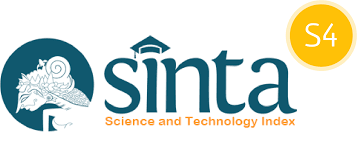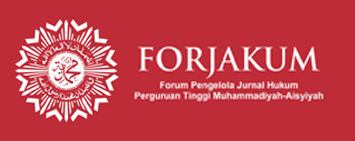The Aftermath of 21st Century Sharia Implementation in Northern Nigeria
DOI:
https://doi.org/10.18196/mls.v3i2.14253Keywords:
sharia implementation, northern Nigeria, twenty-first centuryAbstract
Enforcement of Sharia legal system is a duty bound over every Muslim (Male or Female) on their day to day life and activities. The objective of this paper is to examine the consequences after the implementation of Shari’ah law in 21st Century in Northern part of Nigeria. Therefore, this study addresses the major area of negation and setback in the implementation of Shari’ah law in 21st Century in Northern Nigeria. The study posit out that inconsistence of Nigerian constitution with Shari’ah law, capital offence punishable by Shari’ah law, Hisbah institution, lack of qualified and experts judges, political problem and many others are the setback encountered by means of Shari’ah implementation in Northern Nigeria. Conclusively, the study concludes that 21st Century Shari’ah implementation in Northern Nigeria faced with many challenges.
References
Abdullah, Yunus Ustaz. Priorities in the Establishment of the Shari’ah System in Nigeria. Oseni, Z.I. (2004)
Bello, Mohammed. The Shari’ah Issue: Working Papers for Dialogue: Shari’ah and the Constitution. Published by A Committee of Concerned Citizens, 2000.
Bello, Muhammed Uthman. A General Overview of the Implementation of the Shari’ah in Nigeria Before 2000 and Beyond. A Two-Day Expert Group Meeting on Women’s Rights Under Shari’ah Law in Nigeria, Held at Women Development Center, Agege, Lagos, under the Auspices of Women Advocates Research and Documentation Center (WARDC). A Publication of the Friedrich Ebert Stiftung, March 6-7, 2002
Tawfiq, Muhammed Ladan. The Development and Application of Shari’ah in Northern Nigeria: issues and Challenges. A Two-Day Expert Group Meeting on Women’s Rights Under Shari’ah Law in Nigeria, Held at Women Development Center, Agege, Lagos under the Auspices of Women Advocates Research and Documentation Center (WARDC). A Publication of the Friedrich Ebert Stiftung, (March 6-7, 2002),
Weimann, G.J. Islamic Criminal Law in Northern Nigeria: Politics, Religion, Judicial Practice. Netherlands, Vossiuspers-Amsterdam University Press, (2010). http://nl.aup.nl/books/9789056296551-islamic-criminal-law-in-northern-nigeria.html
Yahya, Olewale Imam. Application of Shari’ah in Nigeria Fourth Republic: Problems and Prospects. Oseni, Z.I. (2004)
Wikipedia, the free Encyclopedia. “Shariah in Nigeria.” Islam in Nigeria, last edited 7 Dec, 2021 https://en.wikipedia.org/wiki/islam_in_nigeria.
Coulson, Noel james and Shamsy Ahmed El. (2019). “Shari’ah.” Encyclopedia Britinnica, 24 jan, 2019/Accessed 13 March, 2022, https:www.britannica.com/topic/shariah
Bawa, Aisha Balarabe. “Muslim Women and Shari’ah Implementation in Northern Nigeria: An Overview of FOMWAN.” UJAH Vol.18, No.1. (2017). http://dx.doi./org/10.4314/ujah.v18il.8
Hassan, Abdulmajeed Bello. “Shari’ah in the Nigerian Constitution: Examining the Constitutional Conference and Shari’ah Debates in the Drafts.” Al-Ahkam Jurnal Pemikiran Hukum Islam Vol. 29, No. 1, (2019): pp. 1-26, Doi: http://dx.doi.org/10.21580/ahkam.2019.29.1.3158
Ikenga, Oraegbunam, K.F. “Shari’ah Criminal Law, Islam and Democracy in Nigeria Today.” (2010): pp. 181-209 Doi: http://dx.doi.org/10.4341/og.v8i1.10
Makinde, Abdulfatah Kola. “The entanglement of shari’ah Application in South-Western Nigeria.” Journal of Pan-African Studies Vol. No. 10, No.5. (2017).
Downloads
Published
Issue
Section
License
Copyright
Authors who publish papers in this journal agree to the following terms:
Authors retain copyright. Authors are permitted to copy and redistribute the journal's published version of the work non-commercially (e.g., post it to an institutional repository or publish it in a book)
Authors are permitted and encouraged to post their work online (e.g., in institutional repositories or on their website) prior to and during the submission process, as it can lead to productive exchanges, as well as earlier and greater citation of published work (See The Effect of Open Access).
This journal is using Attribution-NonCommercial-ShareAlike 4.0 International. You are free to:
- Share — copy and redistribute the material in any medium or format
- Adapt — remix, transform, and build upon the material
The licensor cannot revoke these freedoms as long as you follow the license terms, which include the following:
- Attribution — You must give appropriate credit, provide a link to the license, and indicate if changes were made. You may do so in any reasonable manner, but not in any way that suggests the licensor endorses you or your use.
- NonCommercial — You may not use the material for commercial purposes.
- ShareAlike — If you remix, transform, or build upon the material, you must distribute your contributions under the same license as the original.
- No additional restrictions — You may not apply legal terms or technological measures that legally restrict others from doing anything the license permits.
Creative Commons Attribution-NonCommercial-ShareAlike (CC BY-NC-SA)

This work is licensed under a Creative Commons Attribution-NonCommercial-ShareAlike 4.0 International License.



